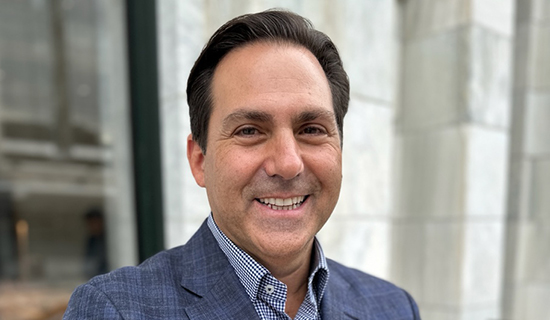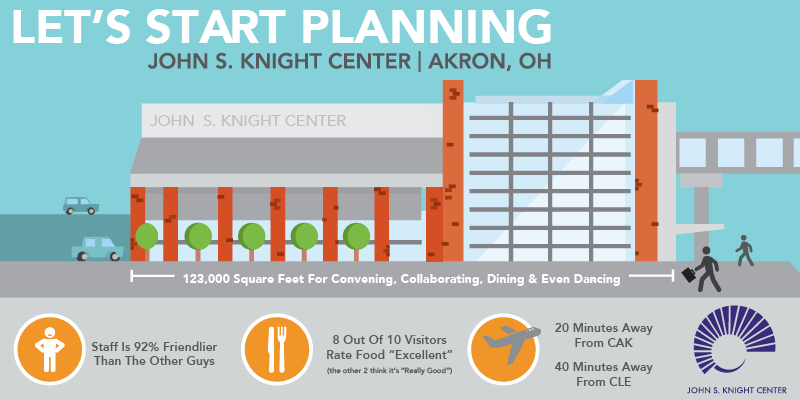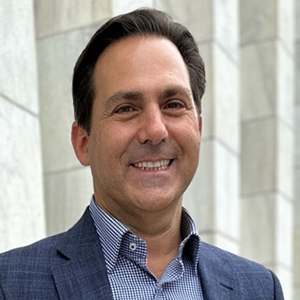The increasing power of artificial intelligence (AI) tools has been the hottest topic in tech in the past year, with a host of AI products exploding in popularity and seizing the public’s attention.
But at Pittsburgh-based Carnegie Learning, AI is certainly nothing new. The technology has been the backbone of the K-12 education services provider’s business for decades. And recent improvements in AI capabilities only make Carnegie Learning, which sells its products to public, private, parochial and charter schools, more adept at examining how students learn and helping educators drive better outcomes.
“We were founded on artificial intelligence,” says Carnegie Learning CEO Barry Malkin. “It really is part of the DNA of this organization. So, we’re really excited about the new advances in AI, because we believe we can do something highly differentiated and continue to invest in improving outcomes for students across the country.”
Having originated at Carnegie Mellon University, one of the most respected research universities in the country, Carnegie Learning uses research, data and learning science at the core of everything it does. Product decisions are based purely on cognitive science and research, not ulterior business motives.
Focusing on the right products for the right reasons and having a continuous improvement process has allowed Carnegie Learning to flourish as a company and help school districts across the country make major strides with personalized, student-centered instruction.
Despite massive success that has led to its employee headcount growing more than fivefold since 2016, and revenue growth more than eightfold in that same timeframe, Carnegie Learning has not strayed from the research roots that made it a cutting-edge asset in education from its inception.
“This company really is mission-driven,” Malkin says. “We’re a commercial enterprise. We are looking to grow our business and be more financially successful. But we don’t do it by compromising the quality of the products and the outcomes we wish to achieve.”
ADVERTISEMENT
Rooted in research
Founded by four cognitive science, computer science and education researchers — Dr. Steven Ritter, William S. Hadley, John R. Anderson and Kenneth Koedinger — at Carnegie Mellon in the 1980s and then spun out as an independent company in 1998, Carnegie Learning was a research project with an initial focus on developing intelligent tutoring systems for mathematics education from grades six through 12.
“They created what was really the first artificial intelligence adaptive learning product for mathematics,” Malkin says. “The Carnegie Learning story was a real success story for Carnegie Mellon University and its technology transfer efforts, specifically. We’re definitely a really good story about how research can become commercially successful and viable.”
Still, it took Malkin’s vision of how successful and viable the company could be for it to reach its full potential. In 2011, Malkin was head of global mergers and acquisitions at the multinational educational services company Apollo Education Group when it purchased Carnegie Learning for $75 million. Malkin was champion and sponsor of the decision to buy Carnegie Learning.
“I was responsible for seeing what I believed could be a huge benefit for students taking math courses at University of Phoenix,” Malkin says. “We bought Carnegie Learning in order to dramatically improve mathematics outcomes through best-in-class technology.”
In late 2015, Apollo decided to sell Carnegie Learning to private investors — a group fronted by Malkin, who left Apollo to become Carnegie Learning’s CEO. That’s how committed he was to the concept.
“I thought Carnegie Learning was a sleeper,” he says. “I thought the people were exceptional, the passion was just amazing, and the products and technology were really, really strong. So, I took a leap of faith.”
Since then, Carnegie Learning has grown by leaps and bounds, expanding its educational offerings by finding new ways to tap deeper into capabilities of AI.
Learning process
Malkin’s first order of business when he became CEO of Carnegie Learning was to modernize the user interface and front-end platform of the company’s products, which had become dated.
His bigger vision, though, was to liberate the technology from being strictly math-based to being used in different verticals across education.
“This product had amazing research that supported its efforts,” he says. “The continuous improvement process that is part of the culture here always means that the product, each and every year, is getting better and better. So, that’s what I saw, and I felt that could really capitalize on the good work that had come before me.”
After many years as a core mathematics company serving grades six through 12, Carnegie Learning expanded to literacy and languages, becoming one of the country’s largest providers of world language curricula. As evidence of the impact these offerings can have, in early 2023, grades K-5 in Buchanan County (Va.) School District saw a 380 percent increase in proficient or advanced readers and a 49 percent decrease in struggling readers after just a few months of using Carnegie Learning’s Fast ForWord reading and language program. Students made an average of nine months’ reading gain in just 67 days.
Recent Carnegie Learning product releases include ClearMath Elementary, the company’s first-ever math program geared toward grades K-5, and a video-based math platform for grades six to 12 called MATHstream, which uses social media influencers as instructors. MATHstream was named Adaptive Learning Solution of the Year in the 2023 EdTech Breakthrough Awards.
What separates Carnegie Learning from more traditional education curriculums?
“Our products are built for the classroom to be very collaborative,” Malkin says. “Our classrooms look and feel different. They’re more vibrant, more exciting and more interesting for students. The teacher is not simply facilitating from the front of the classroom but really engaged in this collaborative dialogue with students.”
Because each student learns at his or her own rate, Carnegie Learning assists the educator by providing, with the help of assessments made by AI, additional instructional tools that provide differentiation between students in a personalized way.
“Ultimately, artificial intelligence is the ultimate personalized instructional tool,” Malkin says. “But a simple chatbot [a software application that mimics human conversation through text or voice interaction] is not enough for students to gain mastery in mathematical concepts. It also needs the educator to have tools to be able to effectively manage the classroom.
“There is no silver bullet for education, but artificial intelligence will allow us and does allow us to differentiate among students in a very personalized way.”
That personalized approach is also how Carnegie Learning manages its own people.
Wisdom of the crowd
Under Malkin’s leadership, Carnegie Learning has greatly expanded its educational offerings and its reach. The company’s products are used in schools in all 50 states and in Canada. In late 2022, Carnegie Learning recently opened a Canadian headquarters in St. John’s in the province of Newfoundland and Labrador.
All this growth has led to an increase in the workforce from roughly 100 employees to more than 550 just since 2016. Carnegie Learning also has more than 500 part-time tutors working with students across the country.
Despite the rapid changes, Carnegie Learning hasn’t lost sight of its culture and values.
“We’ve been fortunate to be ranked as a Top Workplace [by the Pittsburgh Post-Gazette] seven years in a row,” Malkin says. “I think we truly empower people across the organization to have a voice.”
To that point, Malkin stressed the importance of having a flat organization — as opposed to traditional management levels, which he sees as an impediment to growth and empowerment. Carnegie Learning regularly holds a Zoom session called “Make Us Better,” in which anybody in the organization can pitch in with a possible solution to a challenge the company may be facing.
“Even our review process is original and creative,” Malkin says. “Our review process, which we call Make Us Better, is not just simply giving feedback to an employee about how they did. It’s also giving the employee the opportunity to give the company feedback on how we’re doing as an organization. We even have a quarterly happiness survey to track how we’re doing at meeting the goals of our employees.”
Ninety days after a new hire joins Carnegie Learning, the employee is interviewed for feedback on how the company is doing at meeting their expectations.
“We’ve done a lot of unique, creative things to make sure everybody’s voice is heard on a regular basis,” Malkin says. “I’m accessible to anybody, any time. They just set up a call or a Zoom, and I’m thrilled to talk to everybody throughout the organization.”
These refreshing approaches to internal evaluation and communication befit a company that was built on research and centered on meeting the needs of individual students.
“Everybody has individual needs and desires,” Malkin says. “Tapping into those and exposing those are what make us better.” ●



